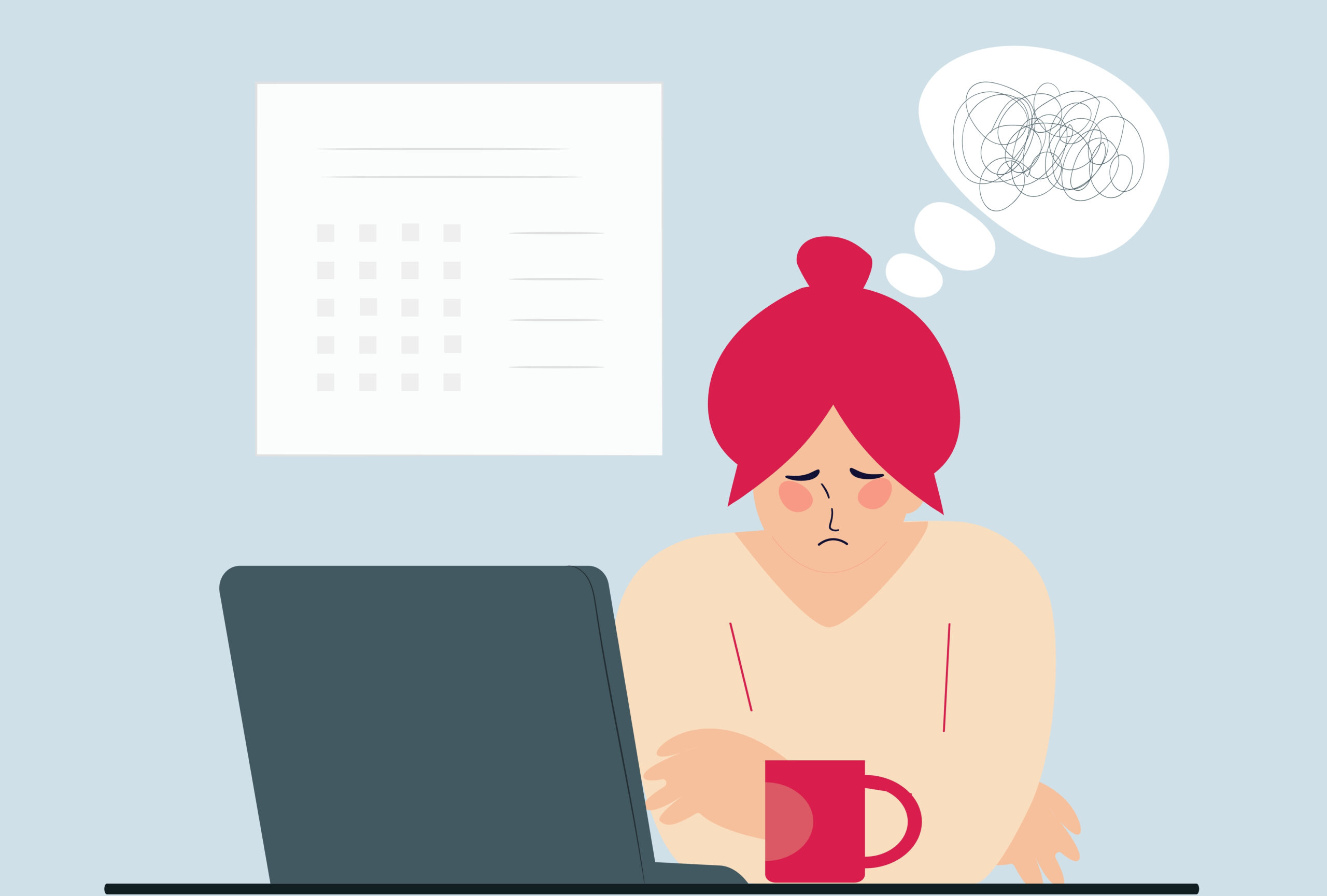What I recognise both in myself and through my work with clients is that stress, although a normal part of life, impacts our lives but how we respond to stress and manage stress is the key factor in mitigating the negative impact of stress and not necessarily the types of stress, whether good and bad stress, depending on our individual interpretation of events. We really do see the world through our own lens of perception and not the way it is.
Most of us are aware that chronic stress has a bad effect on us but there is a difference between the types of stress.


It is not sustainable to feel overwhelmed or suffer from prolonged anxiety from the negative effects of chronic stress and other types of stress if you wish to avoid health problems such as high blood pressure.
Although stress is a natural, normal and at times helpful part of life, as individuals we all react differently to different types of stress depending on the stimulus and whether we deem it to be a perceived threat.
Certainly long term chronic stress management and the avoidance of chronic stress and acute stress causing stress hormones to run rampant in our bodies is going to help prevent mental health problems and possibly reduce for instance the risk of heart disease. In particular certain hormones such as persistent high cortisol levels present in the body are to be avoided to protect our physical health. It is just common sense to avoid frequent high stress situations and negative stressors in life.


Definition of Stress
An up to date definition is that stress is the body’s own response to any demand for change or adaptation, whether it’s physical or emotional in nature.
So although the fight or flight response is essentially there to protect us, to get us to react fast, maybe to save our lives, it should be a temporary state but often manifests in constant low level stress for many of us, causing the release of stress hormones into our bodies which can affect our health..
In the event we experience chronic stress or other types of stress over prolonged periods of time, our bodies’ natural ability to cope becomes compromised due to exhaustion and adrenal fatigue.
What is The Stress Response
The stress response is the body’s response that occurs when you feel threatened and feel acute stress. It’s a natural part of the body’s fight-or-flight mechanism, which prepares us to either fight or run away from danger.
The stress response can also be activated by other situations that as individuals, we perceive as threatening.
The three main physiological components of the Stress Response
Increased heart rate and blood pressure (to help with circulation).
Increased production of cortisol (a hormone released in response to stress).
Increased muscle tension (to prepare for action).


What happens in the brain when you become stressed
The brain tends to shut down its creative thinking when under too much stress which is not helpful and the amygdala takes over.
The amygdala hijack
The innermost part of the brain is known as the Amygdala, this is the oldest part of the brain sometimes known as the Reptilian Brain, and it is responsible for 90% of decision making. It regulates emotions like fear and anger by sending signals to other regions of the body when it senses danger or imminent threat.
Chronic stress causes this area to become more sensitive so that even small amounts of stress are perceived as threatening. This is when one crisis may cause us to ‘lose it’ sometimes known as the ‘amygdala hijack theory’, in other words one loses control of one’s logic and emotions, and this can have disastrous consequences.
This may explain why some people suffering from cumulative stress react faster and more extremely than others when faced with stressful situations.
What is Good Stress?
Good stress or positive stress is the kind of short term stress that gives us the energy and determination to reach the finishing line of a task or physical activity, the enthusiasm to see something through to the end and when required to ‘burn the midnight oil.’ The stress that helps a runner get through the ‘wall’ and get to the finishing line in a marathon.
It goes without saying that if you are engaged in an activity that you enjoy or is important to you then good stress is actually beneficial and enjoyable and can help push us beyond our normal limits.
Good stress is a natural part of life and can be very helpful to call upon when needed but in small doses. It helps you feel more energised, enthusiastic and confident and increases feelings of self worth.
Examples of Good Stress
You feel excited or nervous (similar feelings in the body) before an important meeting or first date, because you want to do well and impress. This type of anxiety motivates us to prepare for the event ahead so that we can be at our best when it arrives.
You’re learning something new because it’s challenging but not impossible – you know that if you put in enough effort, it will bring out the best in you and you will likely achieve the results you desire.
Your heart rate increases during exercise as a result of exertion; this increase improves your physical health by keeping blood pressure levels under control and strengthening muscles throughout the body (especially those used during exercise).
Let’s not forget the positive impact of exercise on mental health also.
Types of Stress
Acute stress and chronic stress
Many people, over the course of life, will experience different types of stress. Acute stress is a dramatic physiological and psychological reaction to a specific event. Chronic stress, however, is a feeling of prolonged stress, a consistent emotional stress level when you feel pressured and overwhelmed over a long period of time, the sort that compromises your immune system and increases your risk of heart disease.
Episodic acute stress
This occurs when an acute stress is experienced too frequently by an individual. This typically occurs in high performers who make unrealistic or unreasonable demands of themselves, causing themselves stress in attempting to achieve their goals.
What is Bad Stress?
More often than not bad stress is caused by external factors and challenging circumstances outside of your control, like a challenging situation at work, where episodic acute stress often occurs or within a relationship creating high stress levels.
This may predispose you towards, for example, mood swings as you experience a potential roller coaster of emotions, weight gain often resulting from stress eating, high blood pressure, digestive problems, and feeling exhausted constantly, should the episodic acute stress last for an extended period of time.
Bad stress can also come from within your own body, such as when you’re feeling sick or injured which if left untreated can lead to chronic stress. This results in physical symptoms like headaches or muscle pain. If this type of stress within the body lasts too long it may turn into chronic stress or acute stress leading to mental health issues like anxiety and depression.
The longer these conditions last, e.g. acute stress or episodic acute stress, the more your immune system is compromised.
Examples of bad stress
Persistent financial difficulties, often examples of episodic acute stress that may feel overwhelming or unsolvable leading to a persistent condition of low level anxiety.
Divorce or separation
Death of a friend, loved one or spouse
Living under the threat of redundancy or your own business worries
Feeling disconnected from others and/or socially isolated
Being a carer for others while trying to juggle the existing responsibilities that you have
Persistent poor sleep
Desire to stress eat
A sense of being bullied, abused or discriminated against
How to avoid severe acute stress and health problems
Stress management is essential. Avoid a stressful situation when possible.Know that the one thing that a person can control is their own thinking and reaction to these external situations.
Nurture your inner world
Learn to find some space between the stimulus and response as Victor Frankl said in his seminal book Man’s Search for Meaning. It was his thinking and altruism in helping others that he believed kept him alive in a concentration camp whilst he saw so many others perish.
Top relaxation techniques
Stress impacts everything and we all experience stress differently but there are ways to calm your body and mind and avoid the fight or flight response when unwanted:


Meditation
This is particularly effective for calming an overactive mind.
Aim to meditate for 10 minutes a day, at the very least spend some time in silence, preferably with your eyes closed. It will after just 4-6 weeks help you feel noticeably calmer, more relaxed and positive.
Observe your breath
Use it as an anchor in stressful times, if it is shallow try deep breathing from the abdomen. Just learning how to breathe deeply will have enormous benefits for your health.
Take a walk in nature
Leave the phone on silent. Walking in a forest or forest-bathing as the Japanese coined it, can be enormously beneficial for mental wellbeing. It can be a type of meditation, as almost anything can be, if you are fully immersed in the task.
Have more walking than sitting meetings at work
Seize the opportunity at all times to get some fresh air and move your body, whilst enjoying a change of scene. Walking activates the left and right sides of the brain, so you will return to your desk sharper.
Find things to be grateful for
When you feel stressed, count your blessings. An attitude of gratitude works wonders.
Take regular physical exercise
Find an activity that you like, you are more likely to stick with it. Exercise helps reduce stress because it reduces muscle tension and releases endorphins that make us feel happier and less anxious and reduce long term stress.
Connection
We are tribal creatures, and spending time with others may help put things in perspective, especially if you are feeling different from everyone else. Also a trouble shared may be helpful too.
Lifestyle changes
Stress impacts lives but making small changes daily can help reduce stress levels. For example, getting enough sleep and eating well will give you more energy throughout the day to deal with stressful situations better than if you didn’t get enough sleep or ate poorly (or both) and simply getting your body moving.
When to Seek Professional Help
It’s important to note that the signs of stress aren’t always obvious. If you’re feeling stressed out and don’t know why, it could be because of a serious health condition or other problem that requires professional help. Do not ignore your own intuition about your body. Do not ignore for instance:
Depression or anxiety that causes significant impairment in your daily life (for example, making it hard to concentrate).
Constant fatigue or lack of energy despite getting enough rest each night.
Trouble sleeping more than three nights per week on a regular basis? You have insomnia, which I once heard described by an expert as self-imposed euthanasia, do not ignore.
The Inside/Outside Work
When I work with clients, I talk about the inside/out work being so transformative.
We do not have to be at the mercy of external circumstances and can always reframe situations in a more positive light. That may involve a real change in your personality but it will be worth it.
Conclusion
I believe it is self-defeating to try and eradicate all stress from our lives, instead ‘deploy the right amount in pursuit of our goals and use it as a catalyst’ as Matt Higgins says in his excellent book ‘Burn The Boats’.
However If you’re experiencing what could be episodic acute stress, chronic stress or acute stress, which is affecting your physical and mental health, get some help now to improve your well being from someone that knows how to help you.
If you are interested in changing self-sabotaging habits which are ruining your life, a good Coach will pay dividends for you.
Begin the journey to improve your own mental health and manage your stress levels before they affect your health and well-being.
You can reach me here for a free 30 minute chat: calendly.com/myramchale





